Uncategorized
How Germany’s Holocaust remembrance culture kicked off a democratic crisis
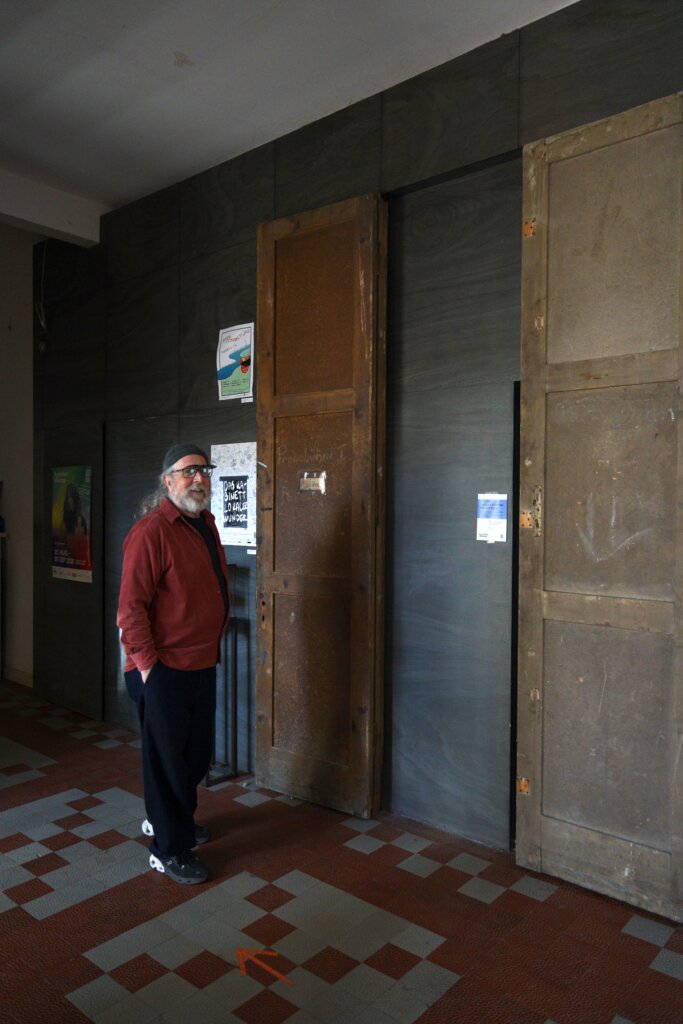
WEIMAR, Thuringia, Germany — Walking through Weimar, Germany, the legacy of the Holocaust seems inescapable. Stolpersteine — German for “stumbling blocks” — are placed outside the homes of people killed during the Shoah, essential evidence of Erinnerungskultur, or memory culture, a national commitment to memorializing, and learning from, the Nazis’ atrocities.
But this commitment is being challenged. Alan Bern, a Yiddish musician described to me as “the man who solved the Shoah,” had just returned from a press conference when I met him, where he spoke alongside local law enforcement officials about a 51-year-old man charged with the 33rd case of vandalism of the memorial stones in the Eastern German city this year.
Bern, 70, an American who came to Germany nearly 40 years ago and holds the nation’s highest civilian honor, said, “Attacks on Stolpersteine are not primarily attacks against Jews, but rather against society and, not least, against human dignity.”
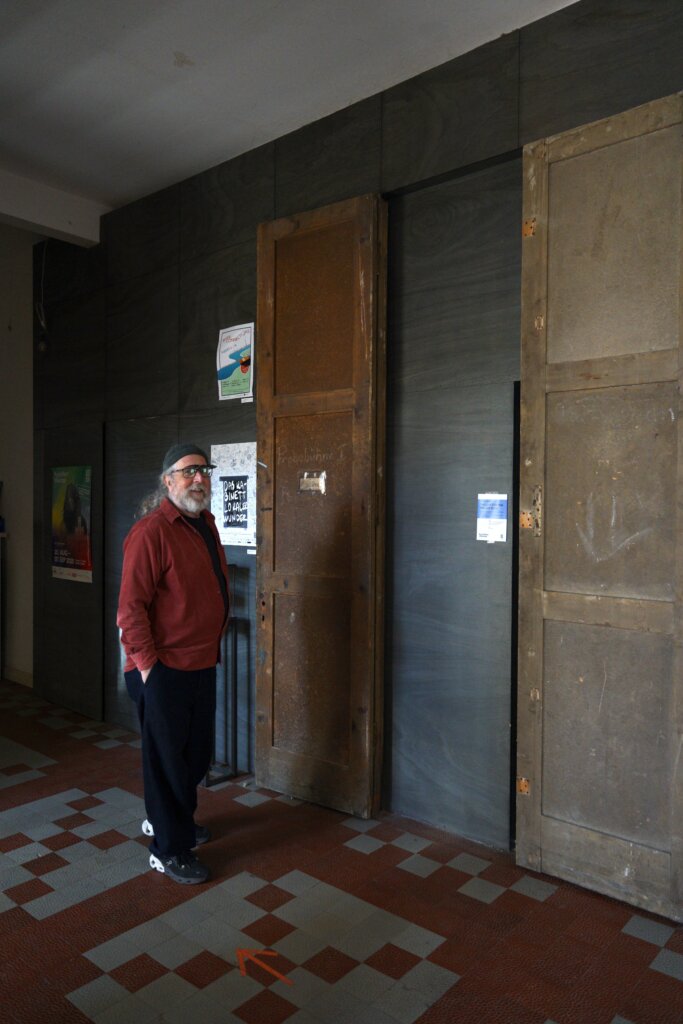
Bern, a composer, founded a school called the Other Music Academy, where he and his colleagues are creating encounters critical to the fight against Jew-hatred in Germany.
They bring together Jews and the descendants of Nazis, Israelis and Palestinians, and Germans and Syrian migrants in an attempt to apply the lessons of the Holocaust forward to the issues facing Germany today. Democracy is in the center’s DNA both in ethos and architecture — the entrance to their dance hall is a 100 year-old door from the Deutsches Nationaltheater in Weimar, where Germany’s first constitution was written and ratified.
“I believe that the encounter with otherness,” Bern said, “is essential to transforming yourself and transforming society.”
Bern’s work helps extend Germany’s memory culture, applying its lessons beyond the Holocaust to address threats against democracy posed by the far-right, which is gaining popularity around the country.
Although not all incidents of antisemitism in Germany are coming from the right, the rise of the far-right Alternative für Deutschland (AfD) party has forced a new debate over Germany’s commitment to remembering the Holocaust and other Nazi atrocities. AfD holds a plurality in Thuringia’s state parliament, and, after this year’s February elections, became the main opposition party in Germany’s federal parliament. The party’s most radical wing says that memory culture is a “guilt cult” and calls for a “180 degree turnaround” in the nation’s approach to remembering its history.
And while many Jews are deeply concerned about the right’s desire to abandon memory culture, some Jews in Germany, particularly those on the left, feel that the societal commitment to preventing another Holocaust has caused the state to police their ability to act and think freely, particularly when critiquing Israel. Since Oct. 7, 2023, Jewish activists have lost awards and speaking engagements, and have even been labeled extremists and put under surveillance by Germany’s state intelligence service.
Memory culture is not just essential to Germans, however; it’s a key for Jews around the world, who take heritage trips to concentration camps and ancestral homes there as part of memorializing the Holocaust. And worldwide, memory culture is essential to remembering global atrocities — yet its tenets are under attack. The Trump administration has criticized the Smithsonian’s approach to slavery, while Turkey refuses to acknowledge the existence of the Armenian genocide.
I went to Germany to speak with both Jews and non-Jewish Germans who are doing the work of bringing memory culture to life, to see how their work is being impacted by these political shifts, and to find out: What is lost if Germany loses its memory?
A brief history of memory culture
After the Berlin Wall fell, in 1989, the newly reunited and democratic Germany defined its national identity as a state committed to learning from the atrocities it committed in the past, thus preventing them from ever happening again.
But this devotion to the Holocaust wasn’t always the case. At the end of World War II, fewer than 15,000 Jews remained in Germany, the majority of whom went to West Germany when the country was partitioned after World War II. West Germany largely avoided accepting responsibility for the Holocaust until 1970, when Chancellor Willy Brandt visited the Warsaw Ghetto, in Poland, and laid a wreath at its memorial.
Meanwhile, under East Germany’s Soviet-style system, Nazi crimes were stripped of their antisemitic motivations and recast as offenses to communism; the small Jewish community of less than 1,000 people who remained there continued to be persecuted by the Stasi for perceived opposition to socialist values.
After the Berlin Wall came down and Germany reunified the following year, Chancellor Helmut Kohl oversaw the immigration of some 200,000 Jews from the former Soviet Union. The majority of Germany’s new Jews moved to Berlin, but others repopulated Jewish communities in the former East.
With the formation of the new German republic, the government moved back to Berlin, and in 1999, voted to construct the Memorial to the Murdered Jews of Europe in the heart of the city — next to Berlin’s famous Brandenburg Gate. They expanded concentration camp memorials to include details about the Holocaust and built a world-renowned Jewish museum designed by Daniel Libeskind. Visits to these sites became a regular part of German school curricula. A centralized national Jewish council — The Zentralrat der Juden in Deutschland, or the Central Council of Jews in Germany — today receives €22 million in government funding to serve as the official voice of Jewish people and to advocate against antisemitism across society.
Memory culture is palpable everywhere in Germany, whether in large memorials and historical sites like concentration camps, or the small plaques and reminders, like the stumbling blocks, about the Jews who once lived there.
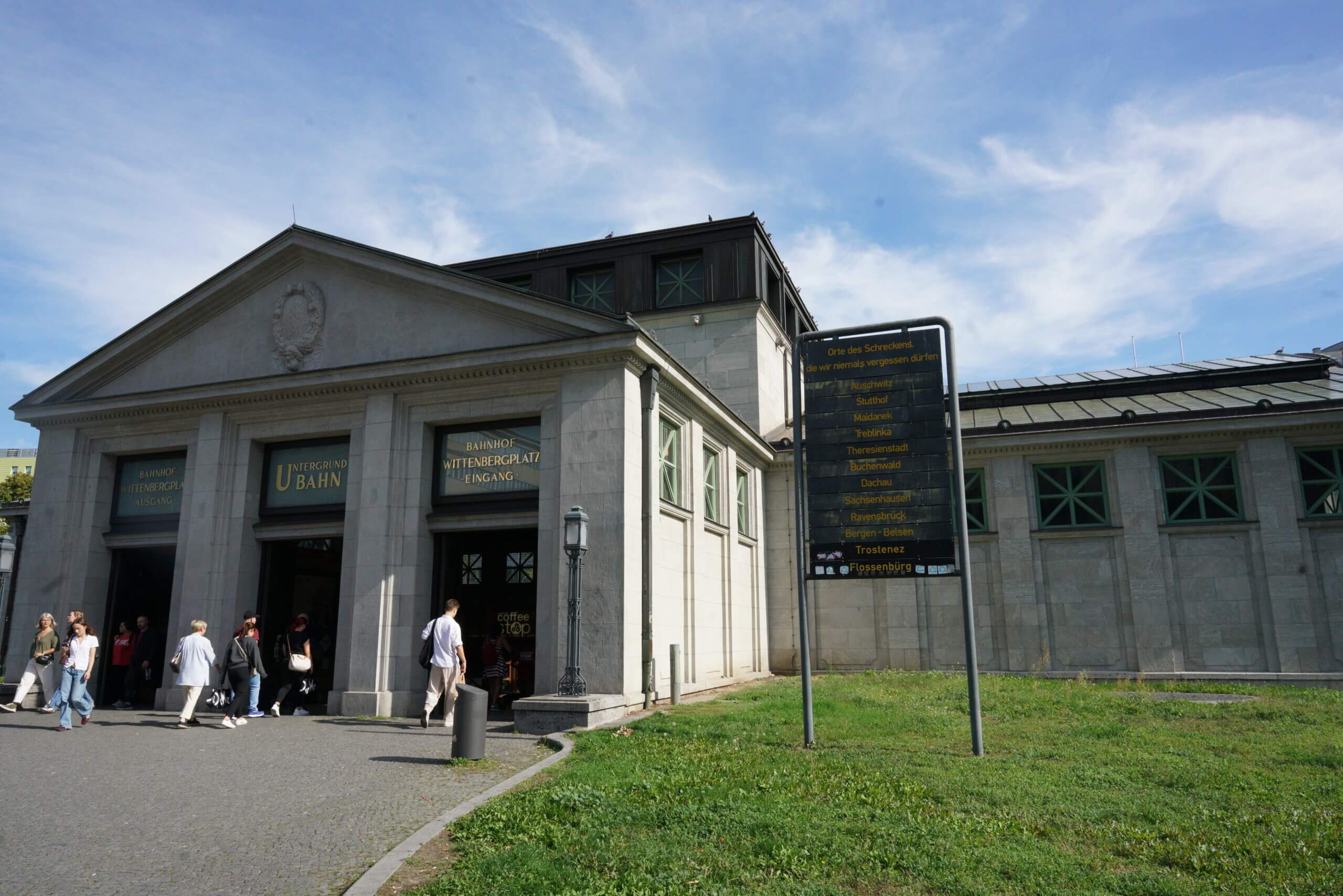
For years, however, shame over the Holocaust has muted national pride. Many Germans avoided flying their flag for fear of invoking the kind of nationalism that led to the rise of the Nazi party. (Though in the past two decades, flags have become more common at German sporting matches and events.)
That has led some, such as the far-right AfD party, to claim that memory culture has harmed Germany. Former party leader Alexander Gauland referred in 2018 to the Nazi era as a speck of “bird shit” in an otherwise grand national history, a speck that was given outsize importance.
And more recently, memory culture has become complicated by modern political concerns. In 2008, Chancellor Angela Merkel declared that supporting Israel was Germany’s “reason of state,” and the government has consistently operated with an iron-clad support for Israel as a form of reparations for the Holocaust.
But as Israel’s actions have come under increasing international condemnation since Oct. 7, Germany’s memory culture too has come under broader criticism by Jews and non-Jews alike. Some Jews in Germany are concerned over what they see as Germany abandoning Israel after Chancellor Friedrich Merz halted weapons exports to the Jewish state in August to curb the supply that could be used in Gaza. Other Jews, meanwhile, feel unable to speak out against the war given the national devotion to Israel.
And the Central Council, the state Jewish voice, believes that AfD is taking advantage of the war to inflame tensions between a new wave of Muslim immigrants and Germany’s Jews — and, in turn, win Jewish support for their party, including their belief in dismantling memory culture. Before this year’s elections, the Council circulated a letter signed by the leaders of every Jewish state organization warning that the AfD “uses Jews as an excuse to spread its racist and anti-Muslim slogans.”
The right-wing critique of memory culture in Germany
The AfD was officially designated a ‘rightwing extremist’ force by Germany’s intelligence agency, a status the far-right party is contesting in court. Still, it is the largest party in Thuringia and is poised to take over at least one state in next year’s elections. This would give it control over the educational and cultural agencies that fund memory culture in Germany, agencies it hopes to defund. Clearly, the AfD is not a fringe group.
And it is gaining increasing influence nationally and visibility internationally. Prior to their strong showing in February’s elections, both vice president JD Vance and President Trump’s ally Elon Musk encouraged German voters to vote for AfD.
The official voice of the Jewish community in Germany unambiguously says that the AfD is a growing threat to German Jews, and Jews around the world. In their 2024 annual report, the Council called the AfD a “legitimizing bridge” between the political mainstream and extremist actors — like the man who livestreamed himself ranting about the Great Replacement Theory before trying and failing to break into the synagogue in Halle with a gun in 2019, killing two people outside its doors.
“There is a will in this party to change the remembrance and the memory of National Socialism in focusing on the positive parts of German history,” said Shila Erlbaum, the Council’s director of policy. “This is an attack on Jewish history and Jewish memory.”
But not all Jews agree the AfD is such a threat. In 2018, a group of Jewish party members founded the Federal Association of Jews in the AfD (JAfD), a small caucus within the party’s 70,000 members. Today, JAfD has only 25 members, along with another 80 supporters who are not full members.
Artur Abramovych, the JAfD’s 29-year-old chairman, told me that they established the caucus after anti-immigrant demonstrations broke out in the eastern city of Chemnitz, when two Kurdish immigrants stabbed and killed a man.
Like the party’s leaders, the JAfD believes, according to its website, that “the greatest threat to Europe in the 21st century is the growth of the Muslim population” and adds that “the rise of political Islam is also primarily a threat to Jews.” While party leaders’ statements contradict AfD’s official support for Israel, the JAfD is strongly and unequivocally pro-Israel.
In January 2024, the German investigative newsroom Correctiv reported that AfD members secretly met with neo-Nazis and wealthy businessmen to plan the mass deportation of immigrants from Germany in a plot called “remigration.” The news brought hundreds of thousands of Germans into the streets in protest.
AfD initially disputed what was discussed at the meeting, though eventually party leader Alice Weidel embraced remigration as the official party platform. Though the party is once again trying to distance itself from the controversial remigration concept to create a broader appeal among the mainstream electorate, JAfD still believes that the plan is essential. Abramovych himself is an immigrant — from Ukraine — but claimed that immigration is threatening German society due to Muslim fertility rates.
Like the party’s hardliners, JAfD is also critical of Germany’s memory culture. Abramovych said that it didn’t originally hurt Jewish people, but now does “because people are forcing German politics to keep the borders open and let millions of Jew haters into the country” due to the state’s Holocaust guilt.
Germany’s immigration politics have moved to the right since Oct. 7, 2023. In an interview with Der Spiegel after the Hamas attack, former Chancellor Olaf Scholz told the magazine, “We have to deport people more often and faster.” Earlier this year, Merz’s government tightened border controls, and in October the Bundestag, analogous to the U.S. House of Representatives, voted to revoke a fast-track to citizenship law passed by Scholz.
While he smoked handrolled cigarettes and drank a cup of black coffee outside of a Ukrainian cafe in Berlin’s Friedrichshain-Kreuzberg neighborhood, I asked Abramovych if he was concerned that Jewish immigrants like himself could be deported from Germany in the future if the AfD gained power and remigration became government policy.
“What? Who would deport the Jews? That’s ridiculous,” Abramovych said.
An alternative critique of memory culture from the left
AfD had its first electoral win in the Bundestag, Germany’s lower parliamentary house, in 2017, becoming the third-largest party in the parliament. Shortly after, poet and political scientist Max Czollek published the best-selling De-Integrate!: A Jewish Survival Guide for the 21st Century, a polemic about Jewish assimilation into German culture. As a result of his edgy take on memory culture in Germany, Czollek has become something of a celebrity, and a bit of a pariah.
For Czollek, AfD is the symptom of a greater problem in Germany where the nation’s guilt over the Holocaust creates a “theater of memory” — a term borrowed from the late sociologist Y. Michal Bodemann — in which Jews play out their dutiful role on the national stage, held up by the state as model minorities, but are subject to losing its protection if they deviate from accepted norms.
Thuringian AfD leader Bjorn Höcke gained infamy when he called Berlin’s Holocaust memorial a “monument of shame,” but Czollek wrote that the idea was not new; in 1998, famed German left-wing intellectual Martin Walser called Germany’s Holocaust remembrance culture “monumentalization of shame” in his acceptance speech for the Peace Prize of the German Publishers’ Association.
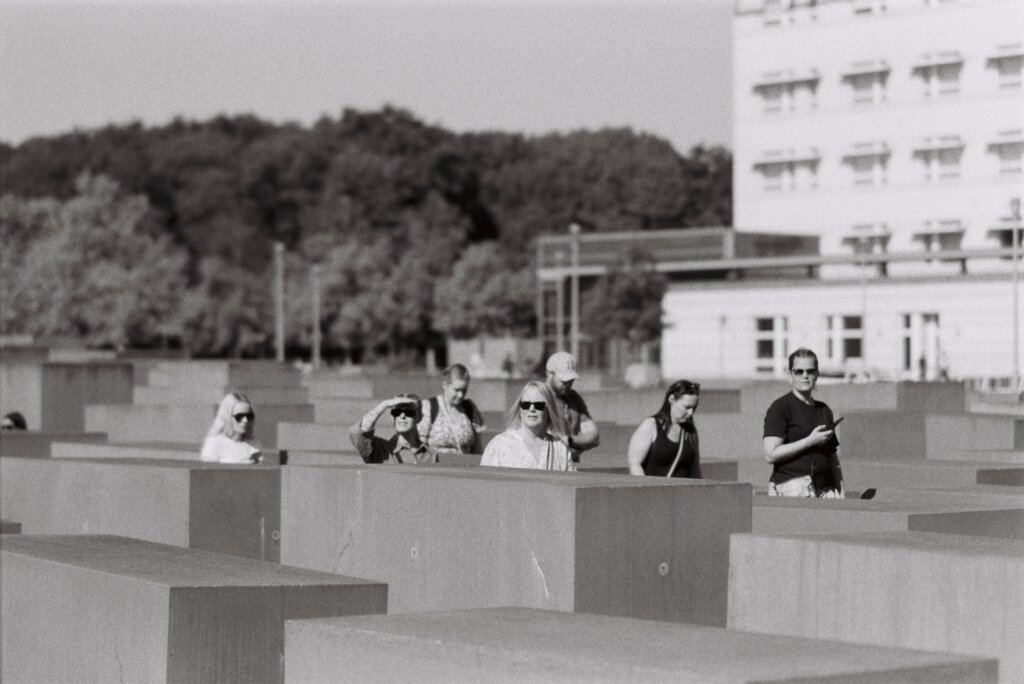
To Czollek, AfD is just the latest step in a proud German tradition of tacitly accepting Nazism, albeit by a different name, in the East.
Behind Balenciaga sunglasses outside of a Kreuzberg cafe, Czollek described his family’s life in the former East Germany, part of a very small community of Jews who stayed after the war instead of departing for West Germany, America or Israel.
“The Jewish rituals I grew up with when my father started to reconnect to this tradition is more like the old, dark, empty synagogue singing of 20 people,” he explained. “And it’s like, ‘Why are there no people?’”
Czollek was born just before the Berlin wall came down, but for his family in East Germany, the Shoah was ever present in the absence of Jews. And it was magnified by what he described as a betrayal by the communist government that took over, which declared itself, its state and all of its citizens to be anti-Nazi — even if they had previously been active members of the Nazi party.
A report by the CIA in 1959 identified over 150 former high-ranking Nazi officials then working in positions of power within the communist East German government, and called it “doubtful” that they were sincere in the “change of political thinking.”
“You have this first generation of Jewish communists who came to Germany to build a better Germany and build up on this idea of anti-fascism as a proper fighting position,” he explained. “Suddenly, a lot of former Nazis were declared anti-fascist. So this is where the memory work fails.”
After the wall came down, Czollek argues that memory culture became a branding tool for Germany to prove itself as a democracy on the international stage — a tool that never offered anything meaningful to the few East German Jews like him, and that has proved ineffective at preventing the revival of a new ethno-nationalist right.
“Memory culture has become a tool in legitimizing and justifying the pride in Germany,” he said. But, he noted, memory culture is a relatively young part of German life; its widespread adoption came, ironically, during the “Years of the Baseball Bat” in the ‘90s, when neo-Nazi violence against migrants escalated severely.
After Oct. 7, Czollek believes that memory culture warped into something else entirely; today, anyone who speaks out against Israel’s response to the attacks in Gaza faces cancellation, disinvitation or even arrest.
“Memory culture used to be a pretty self-centered process of German self-improvement and reinvention,” Czollek said. “By now, it has become a tool of dominance and hegemony.”
“It’s almost like we have done the worst, and we have remembered the best,” he continued, opining that Holocaust and concentration camp memorials boost Germany’s national self-esteem and identity as a moral actor. Then, “you can start accusing migrants of not being as good as you are.”
And Jews who criticize the government’s version of memory culture risk losing state protection.
“There’s a tempting quality to playing along with the theater of memory, because being Jewish is rewarded if you do it in a specific way,” he continued. “Being a non-aligned Jew comes with a price.”
Although solidarity between Germany’s minorities — particularly Jews and Muslims — has become strained post-Oct. 7, exacerbated by the AfD, Czollek believes it’s the only way through the crisis brought about by memory culture and the rise of the far-right.
That’s why Czollek’s new book is called Alles auf Anfang — or, Everything Back to the Beginning. It’s a search for a new culture of remembrance in German life that includes not just Jews, but recognition of other migrant victims in German society.
Currently, much of Germany’s memory culture, exemplified in memorials like the Buchenwald concentration camp, keep their focus firmly in the past. But Czollek believes that, to address the current era, Germany needs to also find ways to commemorate violence perpetrated against its other minority groups.
“If you want to have memory culture as a living, active and productive thing today, it has to be updated every generation,” he said. “Sadness or grief is not a limited resource. We can all grieve together.”
The weaponization of memory culture against Jews
Immediately after Oct. 7, Wieland Hoban, a Jewish German living in Frankfurt am Main, began demonstrating against Germany’s support for Israel, and was arrested multiple times — the first time for wearing a shirt displaying a revolutionary fist logo, which is associated with the pro-Palestinian and anti-Israel organization Samidoun that was banned in Germany a few days following the attack.
The next month, Hoban gave a speech where he said, “Germany can’t wash away its Holocaust guilt with the blood of Palestinians.” Afterwards, he was taken aside by police and charged on suspicion of Volksverhetzung — “incitement to hatred” — a charge that has been used by the German government to prosecute neo-Nazis and far-right extremists, and carries a sentence of up to five years in prison.
In Hoban’s view, memory culture had extended past its logical limits to charge him, a Jew, with a violation of the German criminal code for invoking his own history.
“They explained to me that I had mentioned the Holocaust and that in Germany, they take the Holocaust very seriously,” Hoban said. “This was a bit surreal.”
Hoban, a composer and translator, has been chairman of Jüdische Stimme für gerechten Frieden in Nahost (Jewish Voice for Just Peace in the Middle East) since 2021. He told me that, like many artists in Germany, the cause of Palestinian self-determination has been important to him.
“This occupation of Judaism, through Zionism, had just pushed me away from any identification with Jewishness,” Hoban said. But joining Jüdische Stimme helped him resolve “an inner contradiction” he felt in being Jewish and also supporting Palestinians.
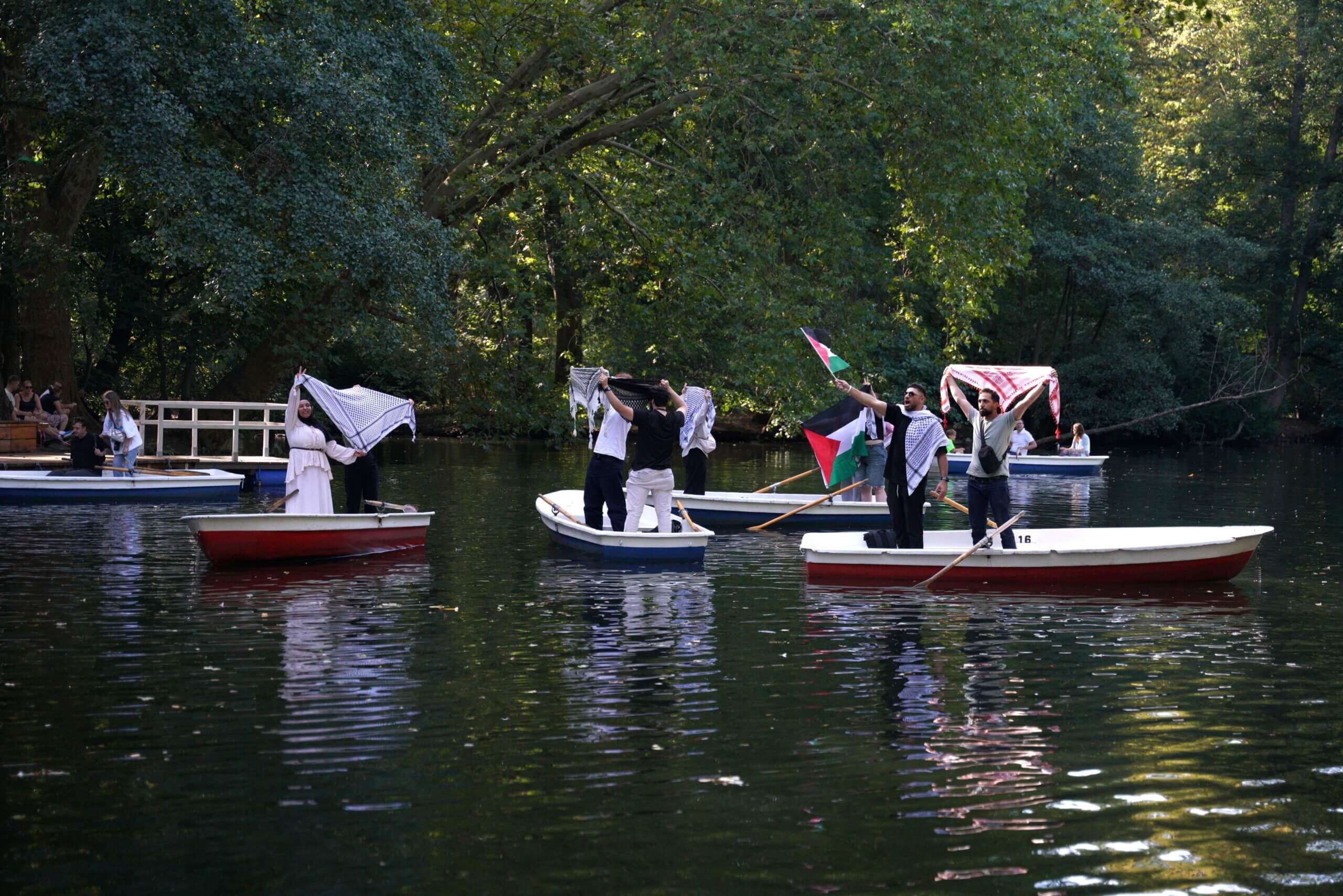
This June, Hoban received a text from a journalist asking him if he’d seen the latest report from the BfV, Germany’s domestic intelligence agency, on extremist groups in Germany. He hadn’t, but when he looked it up, Hoban learned that his organization had been labeled as a “foreign-related extremist” group.
While AfD is using the courts in an attempt to clear their domestic extremist label, Jüdische Stimme is not pushing back. Hoban doesn’t dispute the reasons for the label — he does criticize Israel and Germany’s memory culture — so his group sees no way to clear its name.
“I wish more people would just have the balls to say, ‘I don’t care if you call me antisemitic, I’m sticking to my guns here,’” Hoban said.
With the BfV’s extremist designation, Jüdische Stimme is now vulnerable to surveillance by the intelligence agency, as well as infiltration by informants.
But while the state is adamantly opposed to their cause, Hoban believes that public opinion is changing. The week that we spoke in September, a poll showed that 62% of all German voters believe Israel is committing genocide in Gaza, including a majority of both Christian Democratic Union and AfD voters. A report by the International Federation for Human Rights also found in October that Germany, among other nations, has weaponized the fight against antisemitism to suppress dissent.
And, over a year after Hoban was charged with incitement to hatred, he received a letter from the public prosecutor’s office informing him that the charge against him had been dropped.
A concentration camp gets political
The Buchenwald Memorial was established in 1958 on the site of the former concentration camp by the government of East Germany to commemorate communist resistance fighters; it did not memorialize the dead Jews. But after reunification, the Memorial’s focus expanded to include the more than 56,000 people killed and 280,000 who were imprisoned at the site, becoming a centerpiece in Germany’s tapestry of memory.
Today, Buchenwald — one of the centerpieces of Germany’s memory culture — finds itself caught in the middle of the debate over how to remember the Holocaust. It’s using its mission to confront its dark history in a new way: fighting back against politicians who distort the Holocaust.
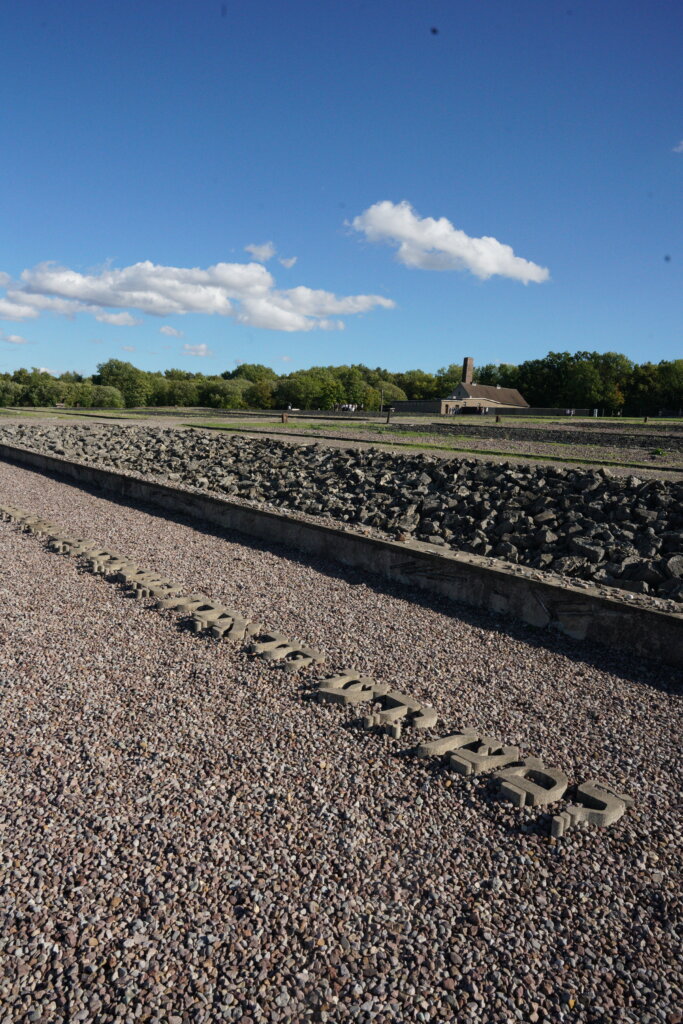
When an AfD member ran for mayor of Nordhausen, a city in Thuringia, in 2023, the Memorial’s official social media pages called him out online for dog whistling to right-wing extremists, invoking a false Holocaust-distorting conspiracy theory. The post changed the course of the election; in the first round of elections, the candidate had more than 45% of the vote, but after the Memorial’s statement, he failed to win in the second round.
“Many older inhabitants of Nordhausen who had not voted for many years said, ‘No, we don’t want to have a Holocaust denier as a mayor,’” the memorial’s director, Jens-Christian Wagner, said in an interview.
Last year, Wagner pursued a more extensive outreach with 300,000 letters mailed to seniors in Thuringia ahead of the state’s elections. The letters warned of the ways in which AfD party leaders have used Nazi language and distorted history.
The AfD fought back, taking the Memorial to court and accusing the Memorial of interfering in “political decision-making.” They lost.
“The court says explicitly that we can’t be neutral against any kind of Holocaust distortion,” Wagner explained to me.
With that mandate, Wagner now considers it his duty and the mission of the Memorial to combat Holocaust distortion, especially when it might affect elections. The Memorial has a particular interest; it’s located in Thuringia, where the AfD is gaining power, and it could lose its funding if the party wins control.
“With our interventions, we don’t think that we can change the positions of the AfD,” Wagner said. “We want to reach all these people who are not specifically voting for the AfD, who are in the gray zone, who can be rescued for democracy.”
Looking towards Germany’s future generations
The AfD has lately focused on reaching youth voters, spending heavily on digital outreach. As a result, young people in Germany are becoming increasingly anti-migrant, embracing far-right political ideas that were once verboten in Germany for being too close to Nazism.
Despite the Memorial’s successful interventions to deter adults from voting for AfD, Wagner is concerned about the rightward shift of younger generations, who are less likely to treat information from a Holocaust memorial with reverence — or even respect its history.
The director described young people who visit the Memorial on school trips displaying the Hitler salute, shouting “Sieg Heil” and photographing each other in front of crematory ovens.
“There were some right-wing young people in every school class for years, but these were only one or two, and the majority was against them, and this has completely changed,” Wagner said. “Now, spreading Holocaust distortion, being right-wing, is common sense in these school classes, and it’s very, very difficult for our educators to have a discourse with them.”
The Memorial has been attempting to revise their educational programming to make visits longer and more in-depth, and even built a youth hostel on the site so that school groups can stay and have extended experiences that they hope will make a lasting impact.
Alan Bern, of the Other Music Academy, also is also worried about the younger generations; he sees resonating with Germany’s youth as one of his most urgent and important challenges.
“Young people in Weimar have almost no real relationship to what it is that we’re doing,” Bern said. “So when they’re told ‘You shouldn’t be antisemitic,’ it’s just some adult telling them ‘Don’t do this.’”
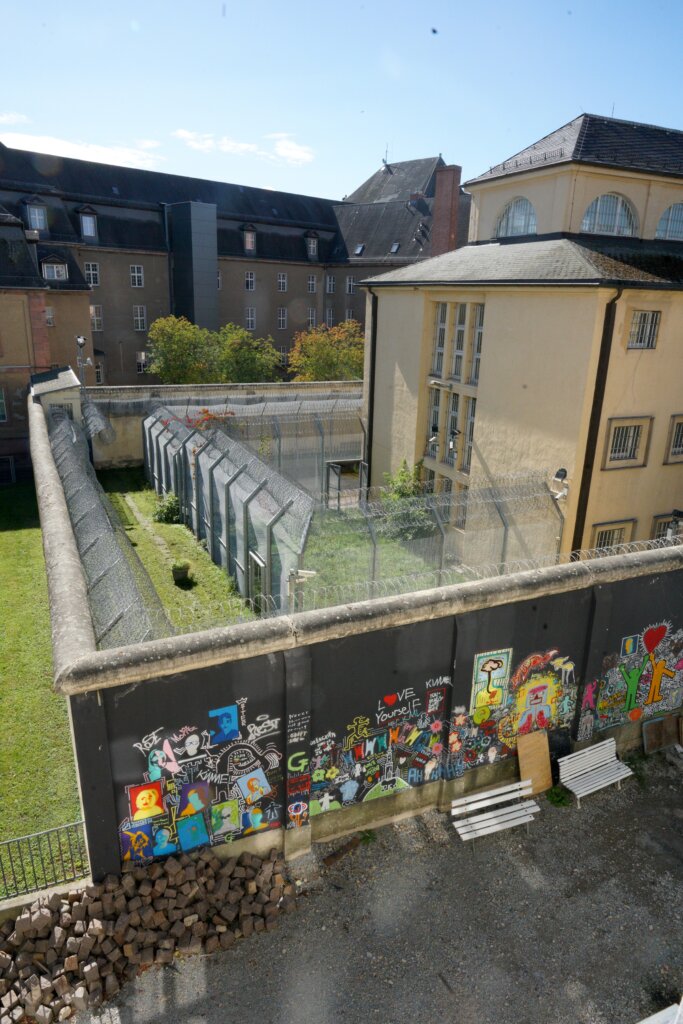
Like at Buchenwald, where the education department has placed its hopes for the future into its youth hostel, Bern wants to transform the former youth prison next to Other Music Academy into a dormitory of sorts where young people can stay for several days. The dichotomy of the prison’s barbed wire courtyard and its painted exterior wall, which artists have covered with colorful Keith Haring murals, pose a striking question about the direction of Germany’s future: Which way?
Pointing towards the floor and then to the prison across the driveway, Bern said, jokingly: “It’s either this or that.”
Challenged from both the left and the right, it’s unclear what is next for Germany’s memory culture. For now, the younger generations are caught in the middle.
While waiting at the bus stop to head back from Buchenwald, I found myself unexpectedly sandwiched in the middle of a high school tour group as they posed for a class photo. After we all boarded the bus, about half of them sat quietly — maybe contemplating the horrors they’d just seen, maybe dozing off. But as we drove down the hill toward Weimar, the bus also filled with the sound of laughter.
The future of memory culture, ultimately, will be up to them.
The post How Germany’s Holocaust remembrance culture kicked off a democratic crisis appeared first on The Forward.
Uncategorized
US urges Americans to ‘DEPART NOW’ from Israel and a dozen other Middle Eastern countries
(JTA) — The U.S. State Department urged American citizens on Monday afternoon to urgently depart from over a dozen Middle Eastern countries amid the escalating conflict in Iran.
The list includes Israel, which halted all commercial air travel when U.S. and Israeli forces jointly attacked Iran on Saturday.
“The @SecRubio @StateDept urges Americans to DEPART NOW from the countries below using available commercial transportation, due to serious safety risks,” wrote Mora Namdar, the State Department’s assistant secretary for consular affairs, in a post on X.
In addition to Israel, the countries listed in the advisory were Bahrain, Egypt, Iran, Iraq, the West Bank and Gaza, Jordan, Kuwait, Lebanon, Oman, Qatar, Saudi Arabia, Syria, United Arab Emirates and Yemen. Several of the countries have been targets of Iranian fire as the regime there has sought to widen the conflict in the Middle East.
While Namdar’s advisory urged Americans to “depart via commercial means,” there is currently no commercial air travel in or out of Israel. Israeli airlines El Al, Air Haifa and Israir announced plans to launch rescue flights to bring stranded Israelis abroad back home once authorities reopen Ben Gurion Airport, but it is not clear when that could happen. Some Israelis are making their way to Taba, Egypt, for passage into and out of Israel, but flights there are limited. Taba is about a 20-minute drive from Eilat, in southern Israel.
President Donald Trump warned on Monday that the largest U.S. strikes on Iran are yet to come.
The post US urges Americans to ‘DEPART NOW’ from Israel and a dozen other Middle Eastern countries appeared first on The Forward.
Uncategorized
Purim gets creative in Israel, with festivities driven underground

TEL AVIV, Israel — On the corner of a sun-bleached side street in Tel Aviv’s Shuk Levinsky, costumed mannequins stand guard over a half-dark shop, their painted eyes fixed on a street gone strangely still. Cardboard boxes of sequined capes and feathered wings spill onto the sidewalk, untouched. The neighboring businesses are shuttered, heavy padlocks fastened across their metal doors.
On any weekday, the quiet would feel unusual in this bustling pocket of south Tel Aviv. But this is Purim week — normally the market’s most frenetic stretch of the year. In ordinary times, the sidewalks would be clogged with parents and teenagers clamoring for last-minute costume details, with vendors shouting prices over the din.
That was precisely the scene just 48 hours earlier, on the Friday before the Purim madness was set to begin. Despite weeks of speculation about a looming confrontation with Iran, most Israelis pressed ahead with their plans. Hamentaschen were baked, school carnivals assembled, parties confirmed. A meme circulated in school group chats: “Can someone let us know if we are supposed to be buying costumes or canned goods?”

Early Saturday morning, an answer came via the piercing trill of the emergency alert system. The United States and Israel had begun what officials described as “preemptive strikes” against Iran. Within hours, thousands of reservists were called up. Citizens scrambled for shelter plans. WhatsApp groups filled with instructions and anxieties. And as Iran launched retaliatory rockets, Israelis absorbed a different blow: Purim was officially canceled.
Hence, the shuk’s current ghost town atmosphere. Inside the darkened shop, Rotem Avidan sat at the register, scrolling on his phone.
“There’s no real reason to be open,” he said. “Mostly I was just bored at home. I’ll probably close up in a couple of hours.”
Avidan has been selling costumes in the shuk for more than 15 years and relies heavily on Purim sales. The day before the holiday is typically his busiest of the year. Instead, he estimates he’ll make about 80% of his usual income.
“It’s not terrible,” he said with a shrug. “But it’s just one more irregular year. We had corona. We had two years of war. This was supposed to be the year things finally went back to normal.”
The past two Purims were indeed subdued, shadowed by the war in Gaza and the fight to bring hostages home. Even celebrations that went ahead felt muted. With the last living hostages returned in October, many had hoped this would finally be an uncomplicated holiday.
To fully grasp why the cancellation hit so hard, one must understand Purim in Israel. This is not a single-event celebration. It is a multi-day spectacle that spills from nursery school classrooms into city streets. Municipal adloyadas — elaborate parades with floats and marching bands — draw families by the thousands. Teenagers roam in coordinated group costumes. It is not uncommon to find yourself seated on a bus beside an elderly woman in full clown makeup, or handed paperwork at the bank by a teller wearing butterfly wings.
None of which would be happening this year.
Children feel the loss most acutely. For many, Purim is the highlight of the school calendar: themed dress-up days, costume parades, parent-run carnivals, and the exchange of mishloach manot before a three-day vacation. On Sunday morning, children across the country woke to the bad news.
Teachers scrambled to salvage what they could. Virtual parades were arranged over Zoom. Students were asked to send photos in costume. Mishloach manot became neighborhood drop-offs.
In some cases, the children made their own Purim joy. In one Tel Aviv apartment building, the kids organized a costume party, complete with printed invitations for guests. Playgrounds around the country — at least those equipped with shelters — were filled with rambunctious children dressed as superheroes and princesses, their bleary-eyed parents dragging slightly behind them.
If children are Purim’s most visible protagonists, they are hardly its only devotees. For young adults, the holiday is the high point of Israel’s nightlife calendar — a sanctioned blur of themed raves and packed bars. This year, the bomb shelter became a stand-in for the nightclub.
Within hours of the first rocket fire, twentysomethings in Tel Aviv’s Florentin neighborhood had organized an impromptu party in a public shelter, complete with makeshift costumes and an amateur DJ. When video of the event went viral, social media flooded with young people asking about the nearest mesibat miklat — a “shelter party.”
Not everyone approved.
“Wow. How disconnected can you be?” one commenter wrote. “People have been killed and you can’t give up your Purim party for one year?”
By nightfall, hundreds had gathered — some in small, shared building shelters for private parties, others in larger municipal bunkers — determined to carve out a pocket of joy, even as Iranian missiles soared overhead.
Shahar Rubin, 24, hadn’t planned on going to a party when he and his friends noticed a stream of people heading into the Dizengoff Center parking garage. “We figured, why not?” he said.

Four stories underground, in one of the city’s largest public shelters, a DJ blasted music as costumed revelers danced beneath the fluorescent lights and exposed concrete.
“This is exactly why we come to Tel Aviv,” said Rubin, who is originally from the north. “There’s nothing like the Purim atmosphere here.”
After more than 400 days of wartime reserve duty in the Israel Defense Forces, the celebration felt like a rare exhale — and perhaps a brief one, before he is called up again. “It was a last hurrah of sorts,” he added, as he and his friends headed off in search of their next mesibat miklat.
Beyond the costumes and parties, Purim is anchored in four religious obligations: a festive meal, the exchange of food gifts, donations to the poor and — most famously — the public reading of Megillat Esther.
“According to Jewish law, men and women are required to hear the reading of the entire Megillah from a kosher scroll,” said Rabbi Nadav Berger, head of Hadar’s Beit Midrash in Jerusalem. “Because the obligation is about publicizing the miracle of Purim, there is a strong preference to do it in public, in a group of at least ten people.”
That preference became complicated as soon as Home Front Command restricted public gatherings.
By the time Shabbat ended, observant Jews were organizing small readings in private homes and shelters. Hadar put out a call for community members who owned kosher megillot.
“Owning a personal megillah isn’t as rare as owning a Torah scroll,” Berger explained. “Many people inherit one or receive one for a bar mitzvah or wedding. Hearing the Megillah in person is still our first recommendation, so we wanted to help facilitate that safely.”
For those unable to attend, Hadar is also offering Zoom options, drawing on halachic guidance developed during the pandemic. “The rulings get into the technical question of how to understand electronically transmitted sound,” Berger said. “But it goes without saying: no one is required to risk their life to hear the Megillah — or to fulfill any other Torah commandment. Safety overrides everything.”
He added: “Typically, one would perform a mitzvah all in one sequence, from beginning to end. But if a siren goes off while you are reading the megillah, it is perfectly acceptable to pause the reading, even for a few hours, until it is safe to return.”
For Berger, the tension between caution and celebration may be truer to Purim than one might expect for a holiday typically associated with pure, unadulterated joy. When he sent out Hadar’s revised Purim plans, he opened with Mordechai’s words to Esther: “Who knows. Perhaps it was for just such a moment that you attained royalty?”
“Meaning, you have to be responsible right now,” Berger explained. “You have to think about your situation and respond accordingly. That’s what we’re trying to do in light of all that’s happening.”
He went on, “If you read the Megillah, most of it is actually anxiety-provoking. It is a very tense story. The joy comes only at the end.”
“The hope,” he said, “is that this, too, is only the middle — and that Israel will once again return to celebrating Purim happily, joyously, as we do every year.”
The post Purim gets creative in Israel, with festivities driven underground appeared first on The Forward.
Uncategorized
Fears of Iranian Sleeper Cell Retaliation Grow in the West as Middle East War Escalates

Iran’s Supreme Leader Ayatollah Ali Khamenei listens to the national anthem as Air Force officers salute during their meeting in Tehran, Iran, Feb. 7, 2025. Photo: Office of the Iranian Supreme Leader/WANA (West Asia News Agency)/Handout via REUTERS
Fears of Iranian-backed terrorism are intensifying across Western countries, with officials warning Iran could mobilize terrorist sleeper cells and proxy networks in revenge for the unprecedented US-Israeli strikes on Saturday that killed Supreme Leader Ayatollah Ali Khamenei — prompting governments to raise threat levels and bolster security for Jewish and Israeli communities abroad.
Sleeper cells are covert operatives or terrorists embedded in rival countries who remain dormant until they receive orders to act and carry out attacks.
As the war in the Middle East continues to spread and escalate, officials in Germany have warned of potential Iranian retaliation targeting Jewish and Israeli institutions nationwide, prompting several federal states to step up protections and issue alerts as threat concerns mount.
“Retaliatory measures — including the possible activation of Iranian sleeper cells in Europe — cannot be ruled out,” Marc Henrichmann, who chairs the parliamentary oversight committee of the intelligence services in Germany, told the local newspaper Süddeutsche Zeitung.
“The Iranian regime has repeatedly shown that it extends its use of terror beyond its own borders,” Henrichmann said. “Federal and state security authorities remain on the highest alert level and will adjust protective measures whenever necessary.”
Roman Poseck, the interior minister of the German state of Hesse, added to German outlet Die Welt that it should “be assumed that there will be an increase in the abstract threat situation, especially for Jewish, Israeli, and American institutions.”
Meanwhile, Felix Klein, the German government’s commissioner for combating antisemitism, warned to the Funke media group that, following the outbreak of conflict with Iran, “we must assume an increased threat to Jewish life in Germany.”
In France, Interior Minister Laurent Nuñez also issued a heightened alert, warning of potential threats and urging regional authorities to reinforce security around Jewish places of worship.
“In light of the current international situation in the Middle East, I reiterate my instructions to remain vigilant and ask you to immediately implement enhanced security measures for Jewish places of worship and religious gatherings,” Nuñez told French newspaper Le Figaro.
The United States and Israel carried out a series of strikes on military and leadership targets across Iran — including senior officials and Islamic Revolutionary Guard Corps commanders — after negotiations over Tehran’s nuclear and missile programs failed to yield results.
Shortly after reports emerged that the US–Israeli joint operation may have killed Khamenei, US President Donald Trump released a message urging Iranians to consider a future beyond the current regime and expressing guarded hope that the moment could lead to meaningful change.
The escalation came weeks after the Iranian regime killed tens of thousands of civilians in a sweeping crackdown on last month’s anti-government protests. The outbreak of fighting also followed last June’s 12-day war between Iran and Israel, which concluded after the US joined and bombed Iranian nuclear sites.
Beyond Europe, fears of Iranian retaliation are rising in the US, as counterterrorism agencies warn that additional resources are being rushed into efforts to detect and disrupt potential revenge attacks on American soil.
Although no specific credible threats have been publicly disclosed, FBI Director Kash Patel said Saturday that US counterterrorism and intelligence agencies were operating under heightened alert, with personnel “working 24/7 … to address and disrupt any potential threats” on US soil.
“While the military handles force protection overseas, the FBI remains at the forefront of deterring attacks here at home – and will continue to have our team work around the clock to protect Americans,” Patel wrote in a post on X.
Amid growing fears of possible retaliation, Secretary of Homeland Security Kristi Noem also said authorities are “in direct coordination with our federal intelligence and law enforcement partners as we continue to closely monitor and thwart any potential threats to the homeland.”
Concerns over the activation of Iran’s sleeper cells have surged even further after a deadly mass shooting in Austin, Texas involving a suspect with alleged support for the Islamist regime and a separate gun attack on the gym of an Iranian dissident in Richmond Hill, Ontario. Both incidents stoked fears of politically motivated violence linked to the broader regional crisis in the Middle East.
On Sunday, a gunman opened fire at a bar in Austin’s West Sixth Street district, killing two people and injuring 14 others before being shot and killed by police.
Authorities later reported finding a flag of the Islamic Republic and photographs of Iranian leaders inside the suspect’s apartment, deepening concerns about potential links between the attack and broader political or ideological influences.
According to the FBI and the Joint Terrorism Task Force, there were indicators that could suggest a possible terrorism link.
In Canada, hours after the announced death of Khamenei, a boxing gym run by Iranian-Canadian dissident activist Salar Gholami was struck by gunfire overnight.
Tehran’s ability to coordinate or inspire attacks on American soil has long been a concern for US law enforcement and intelligence officials — a fear that only deepened after Trump ordered the assassination of Iranian General Qasem Soleimani in 2020.
Amid the 12-day war in June, NBC News reported that Iran had privately warned the United States that it could activate sleeper cells on American soil in response to military action. While no specific plots were publicly disclosed, US authorities increased domestic security measures and intelligence monitoring in anticipation of possible attacks. Vice President JD Vance said the Trump administration was examining the possibility of an Iran-backed homeland attack “very closely.”


